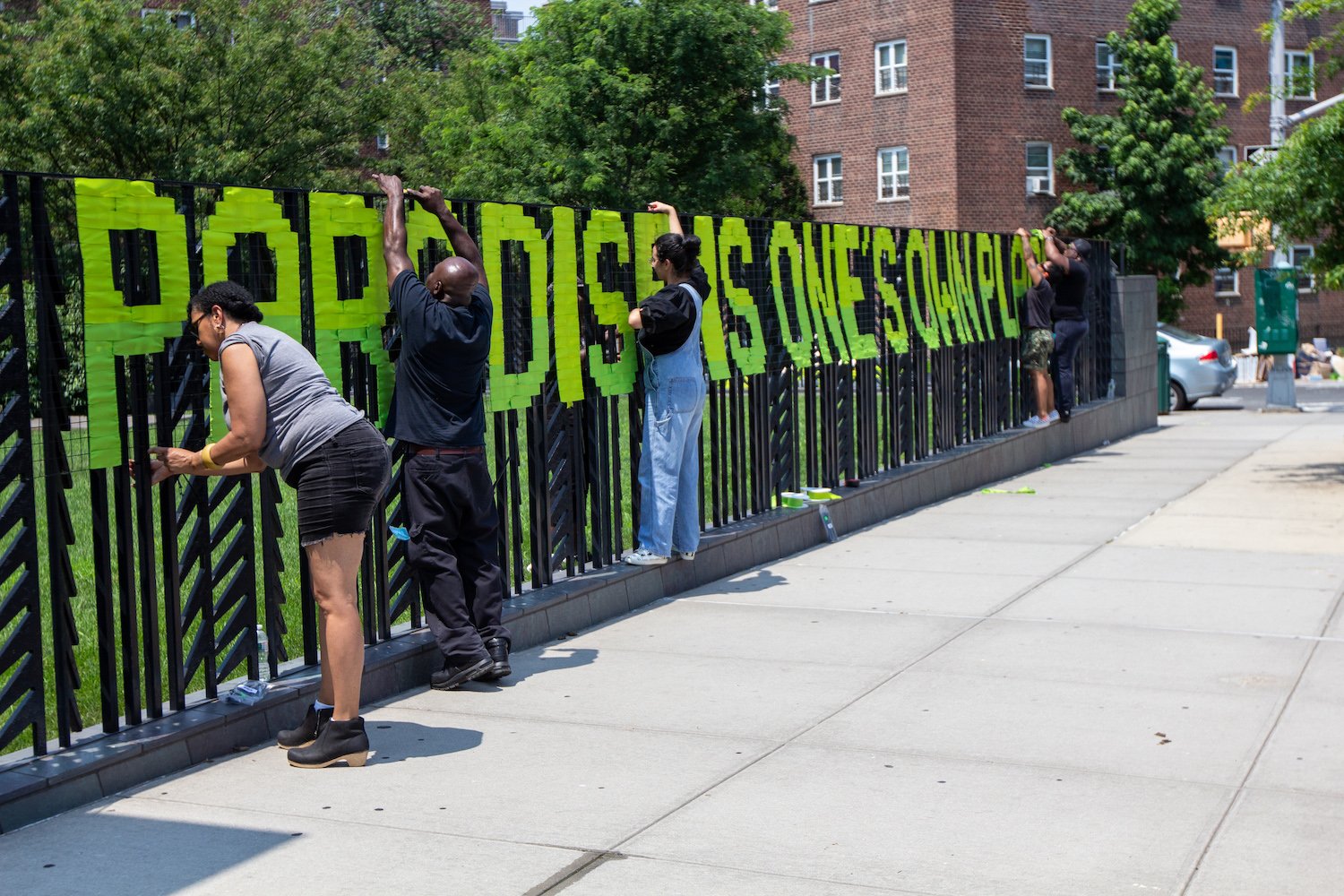
A Blade of Grass, the scrappy New York nonprofit for socially engaged art, is moving to a paid board structure—a move, the organization hopes, that will boost fundraising prospects and ensure a greater commitment to its mission among leadership.
This April, the board, once made up of 11 members, will comprise just six, all of them artists and arts workers. Each will receive a yearly honorarium for their work. With the transition also comes the departure of philanthropist Shelley Rubin, who founded A Blade of Grass in 2011 and has served on the board since.
The new structure, according to director Deborah Fisher, “levels the playing field.”
“It creates a board that can do more at a time when we as an arts organization need really strong leadership to push us through,” she said. “With a paid professional board we can be more committed, we can work a lot faster and more creatively, and there’s a better, more comprehensive understanding of what’s at stake.”
The restructuring is the latest in a series of changes made to the organization’ operations. In the fall of 2020, Fisher was confronted with an unenviable decision. A Blade of Grass, like many art spaces, saw its finances hit hard by the pandemic, and its future was in jeopardy. She could maintain the status quo until reserve funds dried up and the non-profit ceased to exist, likely within six months, or she could make drastic changes that would allow it to continue in a different way.
She opted for the latter, overhauling the organization’s operations and letting all of its full-time staff go. (She, meanwhile, took a 10 percent pay cut and stayed on as the only employee.) It was a controversial move, but one that exposed the plight of small-sized nonprofits in a post-pandemic world.
Deborah Fisher. Photo by Jason Schmidt, courtesy of A Blade of Grass.
To her, the traditional non-profit board model felt long overdue for an audit. “The essential work of a nonprofit is to accept generosity and transform it into mission-driven work,” she told Artnet News at the time. “In order for this to be effective, the giving really does have to function as a gift—it has to be given freely to support the mission. And the organization… has to have a business model that reduces reliance on each giver, and leadership that is accountable to the mission.
“When these conditions aren’t met,” Fisher said, “gifts turn into transactions and the donors’ needs are met instead of the mission’s.”
Many organizations leaned on donors even more during the pandemic, just to keep the lights on. But that exchange also means giving donors more power. “The costs of that are huge, and in no way theoretical,” Fisher said.
Identifying a solution to this problem has been a priority of Fisher’s since her 2020 announcement. She’s since held “listening sessions” with current and former Blade of Grass fellows, board members, and employees. A majority of them spoke to the importance of the organization being artist-led.
“Previously, the organization’s board work was allied with the usual decisions about keeping a nonprofit active and thriving. Now the board members are also intimately woven into making what the organization is and will be,” said Brett Cook, an interdisciplinary artist and former Blade of Grass fellow who has served on the board since 2016. He’s one of three current board members, along with Michael Quattrone and Michael Premo, who will remain on after the transition.
“The change,” Cook went on, “includes remaking the organization and its structures to best benefit practitioners by an intimately involved group of seasoned creatives from the field. By having leaders that come from this work means a different kind of literacy and commitment to the work.”
LaJuné McMillian’s Black Movement Library: Movement Portraits, presented by A Blade of Grass in collaboration with Brooklyn Public Library. Photo by Jason Leavy.
Cook and the other members of the newly remade board—including Diya Vij, Gregory Sale, and Ashley Sparks—will be compensated with an annual honorarium for their work, the amount of which is currently being worked out with an attorney and compensation consultant. (It will likely fall between $10,000 and $15,000, Fisher said.) But with the money comes new responsibilities, including, most importantly, fundraising expectations.
For the next three years, the honorariums will be paid for through a $450,000 donation from Rubin, a gift that marks the end of the founder’s relationship with the nonprofit she established more than a decade ago.
“While I couldn’t be prouder of the work done by A Blade of Grass over the years, I believe it is important that leadership be refreshed so that it can be revitalized and the organization can continue pressing forward,” Rubin told Artnet News. “The challenges of building a sustainable model have shown that new voices and perspectives are essential. And at the same time, I want to focus now more on my family. The confluence of these factors have convinced me that this is the right moment to step down.”